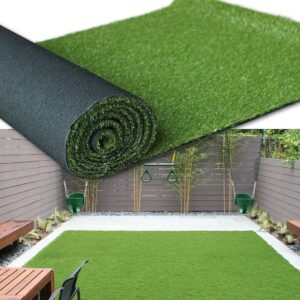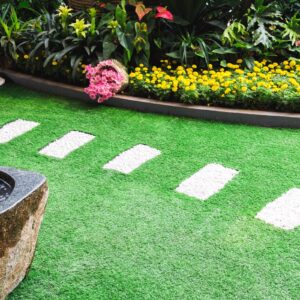Natural vertical gardens, also known as living walls or green walls, offer a range of benefits, making them a popular choice for both aesthetic and environmental purposes. Here are some of the key benefits of natural vertical gardens:
Improved Air Quality
Vertical gardens help filter and purify the air by absorbing pollutants and carbon dioxide and releasing oxygen. This can lead to improved indoor and outdoor air quality, especially in urban areas with high pollution levels.
Aesthetic Appeal
Vertical gardens add a visually striking and vibrant element to any space. They can be designed with various plant species, colors, and patterns, enhancing the aesthetics of homes, offices, and public areas.
Space Efficiency
In urban environments where space is limited, vertical gardens make efficient use of vertical surfaces, allowing people to enjoy the benefits of greenery without sacrificing valuable floor space.
Noise Reduction
The dense plant growth in vertical gardens can act as a natural sound barrier, reducing noise pollution in urban settings.
Temperature Regulation
Vertical gardens can help regulate temperatures in buildings by providing insulation. They can keep interiors cooler in the summer and warmer in the winter, potentially reducing energy consumption for heating and cooling.
Biodiversity Promotion
Vertical gardens can attract various insects and birds, contributing to urban biodiversity. They provide habitats for beneficial insects and can support pollinators.
Stress Reduction
Exposure to greenery has been linked to reduced stress and improved mental well-being. Vertical gardens can create a calming and soothing atmosphere, whether indoors or outdoors.
Energy Savings
By providing shade and insulation, vertical gardens can reduce the heat gain in buildings, leading to lower energy costs for cooling during hot weather.
Sustainable Design
Vertical gardens align with sustainable and eco-friendly design principles. They promote sustainable urban development and can be integrated into green building certifications like LEED (Leadership in Energy and Environmental Design).
Educational and Therapeutic Benefits
Vertical gardens can serve as educational tools in schools and community centers, teaching people about plant care and environmental stewardship. They can also be used for horticultural therapy and healing gardens.
Branding and Marketing
In commercial spaces, vertical gardens can be used as a unique branding element, making a positive impression on customers and clients. They can also set a business apart as environmentally conscious.
While vertical gardens offer numerous advantages, it’s important to note that they require regular maintenance, including watering, pruning, and pest control, to thrive and continue providing these benefits. Proper design and installation are also crucial for their long-term success.
Vertical garden in delhi, natural vertical garden, green wall, bio wall, bio wall felt, vertical garden panels.







